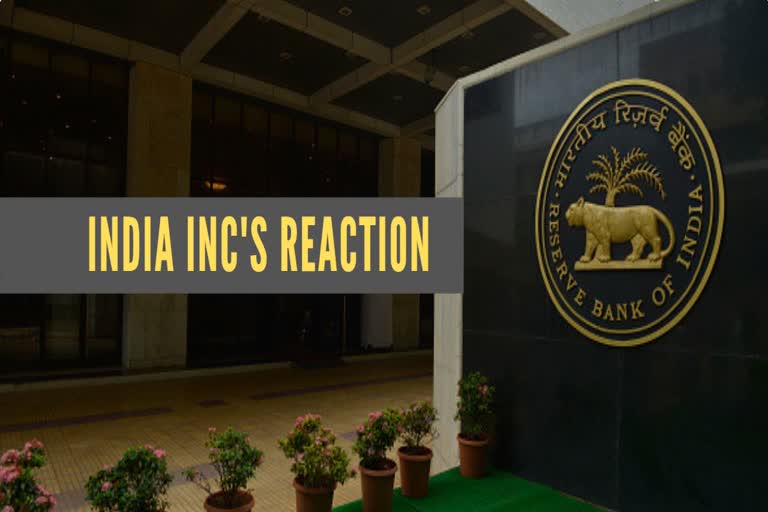Mumbai: Divergent industry views emerged after the Reserve Bank of India (RBI) on Thursday kept repo rate unchanged at the current level of 5.15 per cent and lowered its GDP forecast to 5 percent for the current financial year 2019-20.
"The decision to not lower interest rate has come as a surprise and a bit of a disappointment to the industry," said Shishir Baijal, Chairman and Managing Director of Knight Frank India.
"It would have provided a much-required reprieve to some ailing sectors like real estate and auto. The RBI has probably taken the cautious approach of wait and watch to see the effect of past rate cuts and also to assess the inflation trajectory," he said.
FICCI President Sandip Somany said leaving the repo rate unchanged is contrary to what the industry body was expecting, given the weakening growth scenario in the economy.
"We note with concern that the transmission of the earlier policy rate cuts has not happened adequately, and are disappointed with the decision to not cut the repo rate as there is a need for continued action on the policy rate front. A reversal in the declining economic growth trajectory is clearly the need of the hour and all steps should be taken to bring about this change," he said.
Kumaresh Ramakrishnan, Chief Investment Officer at PGIM India Mutual Fund, said the central bank has retained the accommodative stance, signalling that the rate cut cycle is not over. The status quo on rates appears to have been influenced by a change in inflation dynamics since the October policy.
However, Joseph Thomas, Head of Research at Emkay Wealth Management, said there are three reasons why there was actually no need for the RBI to cut the rates this time.
First, the retail inflation indicated by the consumer price index has shot up to 4.62 percent, well above the RBI target ceiling of 4 per cent. Second, the rupee is weaker today than it was three months ago. A weaker rupee is akin to lower interest rates.
Third, the liquidity in the inter-bank market and systemic liquidity are in surplus and there is sufficient liquidity to see the auctions go through smoothly. "The liquidity conditions ensure that rates, especially at the short end of the curve, remains low. This is what is actually achieved by a repo rate cut too."
Realty players also expressed disappointment over RBI decision to hold rates
"India Inc. was expecting a rate cut of 100 basis points instead of small tinkering such as a rate cut of 25 basis points, which would have provided a boost to the government's recent initiatives to kick-start GDP growth," NAREDCO President Niranjan Hiranandani said.
Anarock Chairman Anuj Puri said, "From a real estate point of view, rate cuts are obviously always welcome as they help improve overall sentiment. The expected rate cut of 25 basis points would have caused home loan values to fall below 8 percent for the first time ever".
Sanjay Dutt, MD & CEO, Tata Realty & Infrastructure Ltd said, "This time while the focus of the RBI remains to be on reviving the economy, we are disappointed to see no change in the policy rate".
The real estate industry, in particular, has been facing some difficult times and with inventories piling up the need to push demand and encourage purchase is now more than ever, he added.
Bankers on RBI rate cut
SBI chairman Rajnish Kumar, who also heads the industry lobby Indian Banks Association, termed the status quo policy as an "unanticipated policy surprise".
Stating that the rate call has come as a surprise, largest private sector lender HDFC Bank's chief economist Abheek Barua said, "clearly, the RBI has responded to hardening inflation and rising inflation expectations."
Kotak Mahindra Bank's Shanti Ekambaram also said the transmission process is likely to improve further, but added it is "interesting" to see the paused call was unanimous for the six-member panel.
Read more: RBI to facilitate setting up of self-regulatory body; hikes aggregate lending limit to Rs 50 lakh



